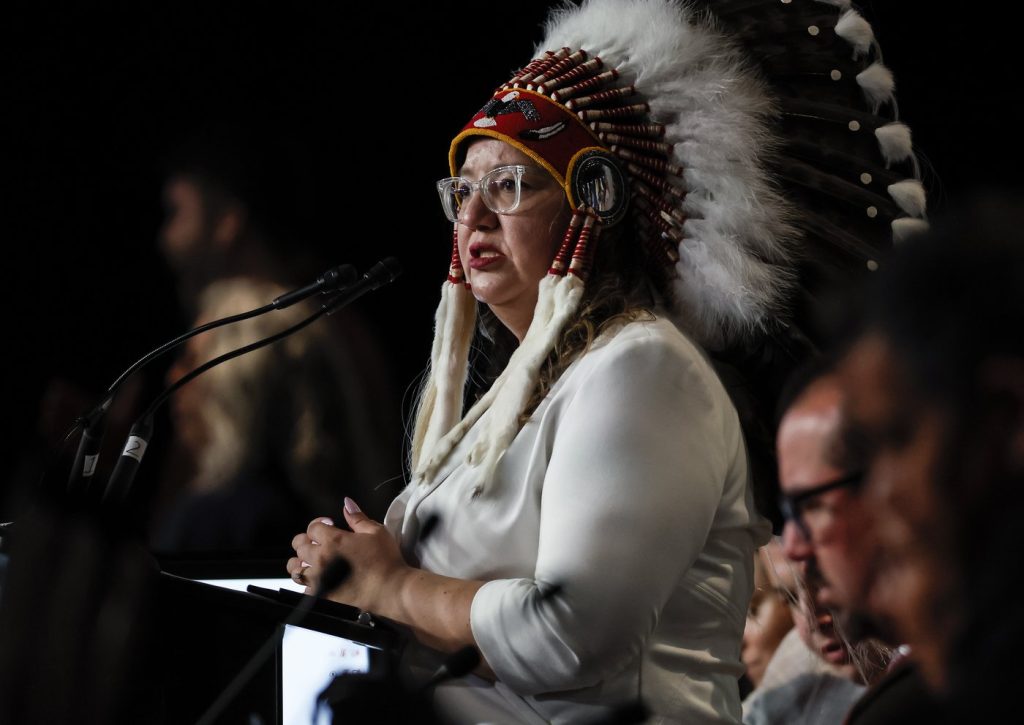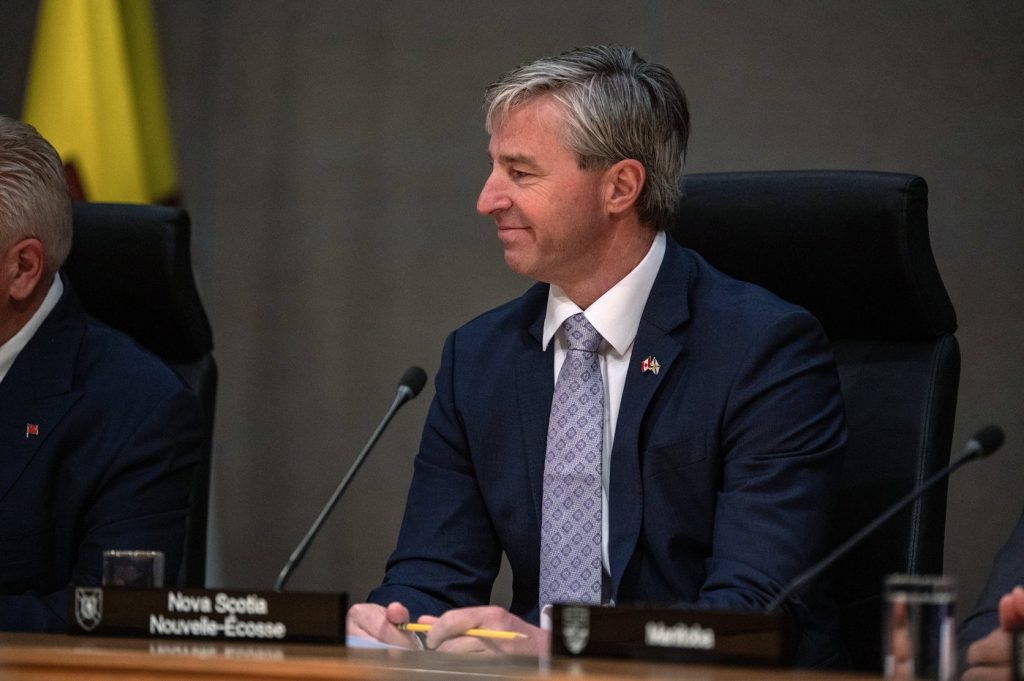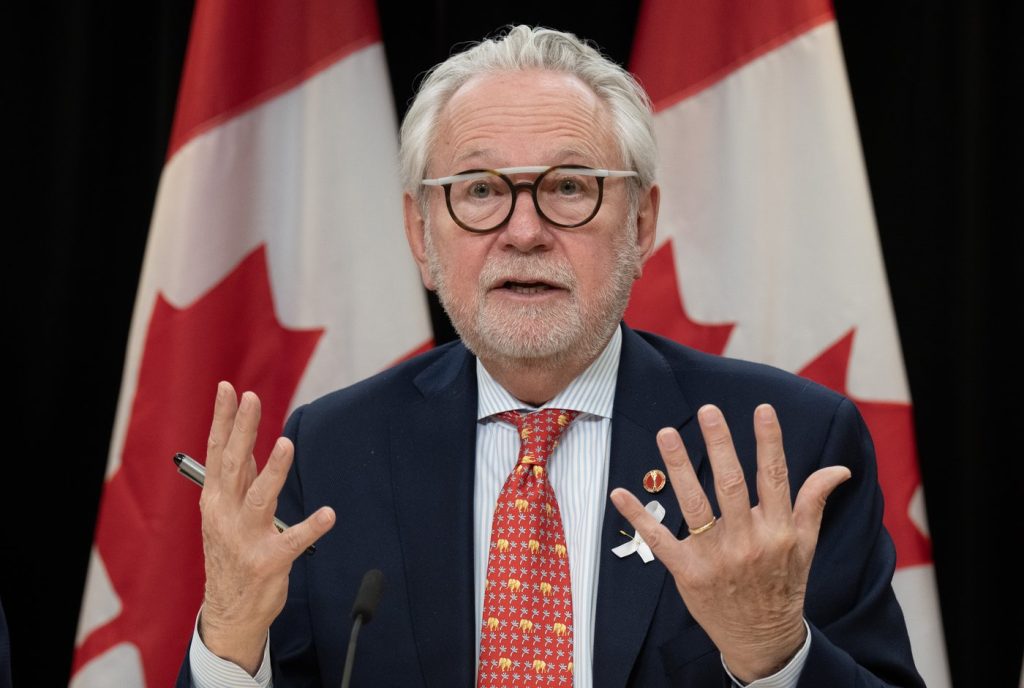OTTAWA — The national chief of the Assembly of First Nations, Cindy Woodhouse Nepinak, criticized the federal government for not fulfilling its promise to legislate First Nations policing as an essential service. During a session with the House of Commons Indigenous Affairs Committee, she expressed concerns that inadequate funding for First Nations police services is endangering community safety and preventing appropriate law enforcement against crime.
In 2020, former Prime Minister Justin Trudeau pledged to introduce new legislation governing First Nations policing, but as of now, no such law has been enacted. Woodhouse Nepinak emphasized that First Nations police forces are community-oriented and not prone to excessive force, stating, “They’re trying to be grounded in community.” She urged MPs to demonstrate the political will necessary to enact the policies demanded by First Nations communities.
Despite Trudeau’s assurances that the legislation was forthcoming, it has not been presented. An access-to-information report from 2023 revealed that the federal government and the Assembly of First Nations have disagreements regarding whether policing should be recognized as a matter of First Nations jurisdiction—similar to policies established for child welfare services. Furthermore, the government attributed delays to “ongoing challenges” faced by the Assembly of First Nations, further complicating legislative efforts.
Woodhouse Nepinak recalled the remarks made by civil servant Mark Carney during an election campaign, affirming the necessity for First Nations policing and expressing a desire to expedite the delivery of essential services. However, progress has been disappointingly slow, as articulated by Ontario Regional Chief Abram Benedict, who pointed out that northern First Nations communities are increasingly vulnerable to organized crime due to insufficient police presence.
Funding for First Nations police services currently comes from a partnership between provincial and federal governments, with provinces covering 48% and Ottawa contributing the remaining 52%. Chiefs have criticized this funding formula as inadequate, especially when provincial contributions are lacking. Last year, the Supreme Court of Canada ruled that Quebec must increase its funding for a First Nations police force, labeling the previous refusal to negotiate funding as dishonorable.
The Chiefs of Ontario have initiated a lawsuit against the Ontario and federal governments, alleging that they are failing to provide equitable access to justice compared to other Canadians. Additionally, in 2023, First Nations chiefs escalated their grievances by launching a human rights complaint focused on chronic underfunding of community safety initiatives.
During the discussions, Conservative MP Billy Morin, a former chief of Enoch Cree Nation, noted that legal actions would be unnecessary if the governments acted on the solutions proposed by First Nations communities. He underlined that while specific solutions may differ across communities, the issue of inadequate funding remains a common thread.
Calls for formal legislation on First Nations policing gained momentum following a tragic event in 2022, where 11 individuals were killed and 17 injured in James Smith Cree Nation and Weldon, Saskatchewan. The incident highlighted the deficiencies of the Royal Canadian Mounted Police, whose closest detachment was located nearly 50 kilometers away, prompting immediate demands for improved emergency services and faster response times.
Concerns about police-related deaths of First Nations individuals intensified over the past year, with Woodhouse Nepinak asserting that these incidents reflect systemic discrimination requiring accountability and a reformation in police practices. She underscored the request from First Nations for a federal inquiry into these deaths, claiming that no response has been provided.
“Injustice and crime persist,” concluded Woodhouse Nepinak, illustrating ongoing challenges in achieving justice for First Nations communities. As the dialogue continues, it remains imperative for governmental bodies to engage with First Nations in addressing these pressing issues effectively.












